2018 China-Korea-Italy Workshop on Submerged Floating Tunnel held at ZJU
A Submerged Floating Tunnel (SFT) is a great potential traffic structure for crossing long waterways and deep straits. It has been included in one of the 60 important scientific and engineering technical problems by China Association for Science and Technology in this year. Currently, the design and construction technology of SFT has attracted great attention and special research from scientists and engineers in Italy, China, South Korea, Norway, etc.
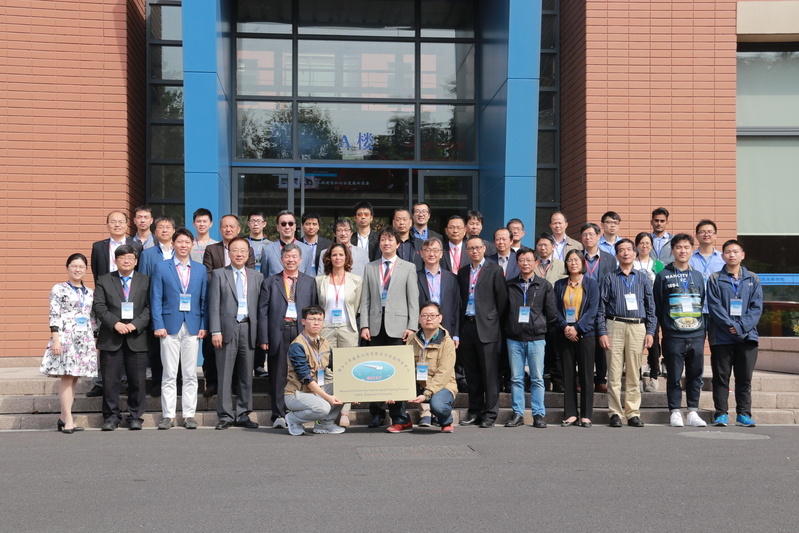
In order to cope with the world-class engineering and technical problems and the challenge, share the new research results and ideals about SFT, and to discuss the future cooperation research and key technology in the field of SFT, 2018 China-Korea-Italy Workshop on SFT was held at ZJU on Oct.12. The workshop allowed participants to share new research results and ideas about SFT, discuss about future opportunities for collaboration, and work towards solving engineering challenges in this field. More than 50 professors and engineers from China, Korea and Italy participated in this workshop.
Prof. ZHU Bin, deputy dean of College of Civil Engineering and Architecture (CCEA), ZJU, Prof. Hyo-Gyoung Kwak, department head of Korean Advanced Institute of Science and Technology (KAIST), and Prof. Faggiano from University of Naples Federico II, gave opening addresses on behalf of Chinese, Korean, and Italian scholars respectively. The three sides unanimously emphasized that SFT is an innovative field involving multidisciplinary intersections and that it is necessary to strengthen the international cooperation in the field to jointly promote the research and development of SFT. And the representatives together unveiled the plaque of Research Center for Submerged Floating Tunnel, ZJU.
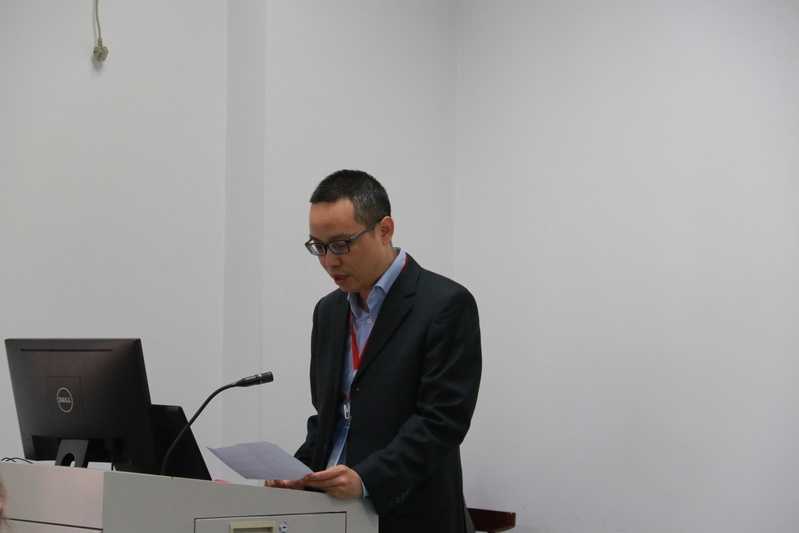
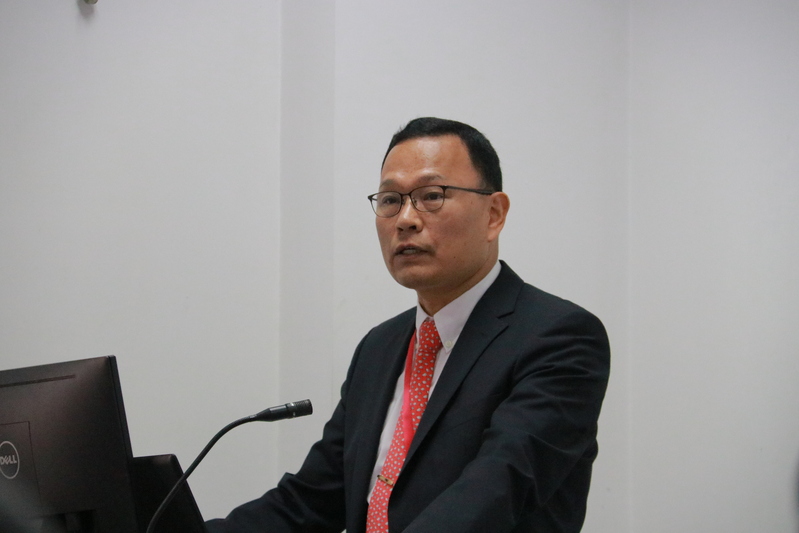
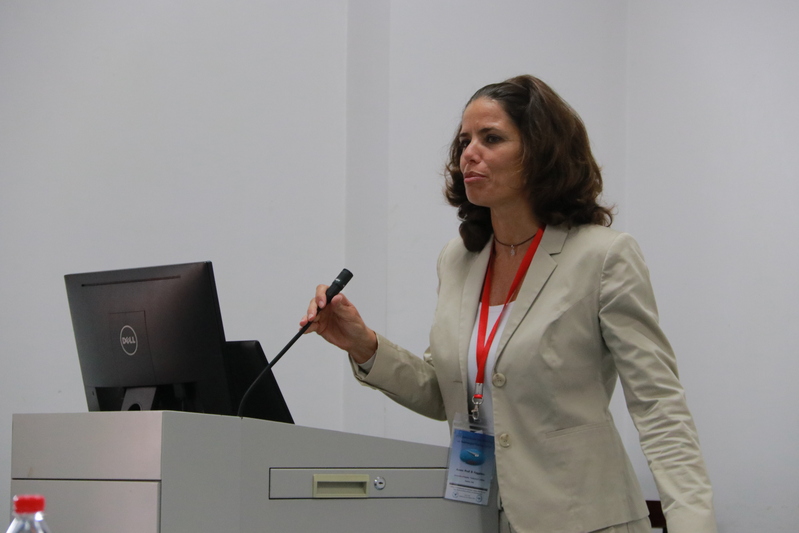
Prof. ZHU Bin, Prof. Kwak and Prof. Faggiano (left to right)
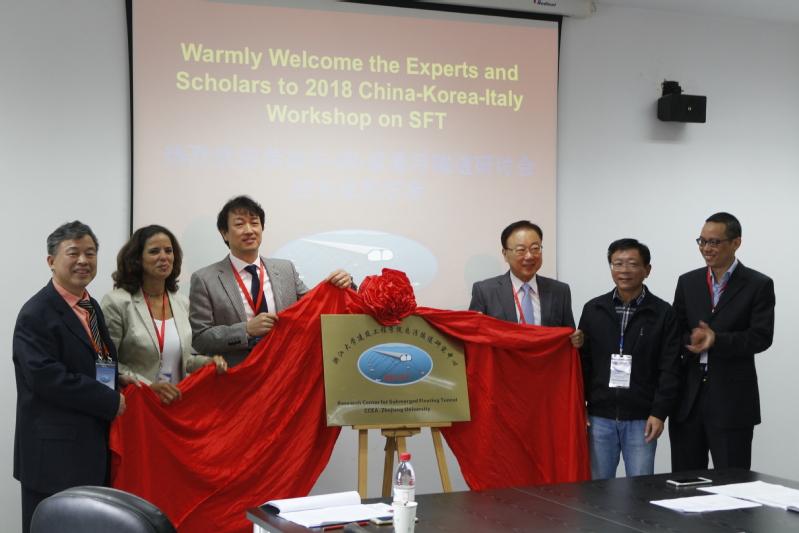
After the keynote lectures and an open discussion on the latest scientific research of the SFTs, Prof. XIANG Yiqiang, director of RCSFT, Prof. Haeng-Ki Lee from KAIST and Prof. Faggiano representing Chinese, Korean and Italian sides, signed an MOU to further trilateral exchange and cooperation and jointly tackle the challenges in structural engineering.
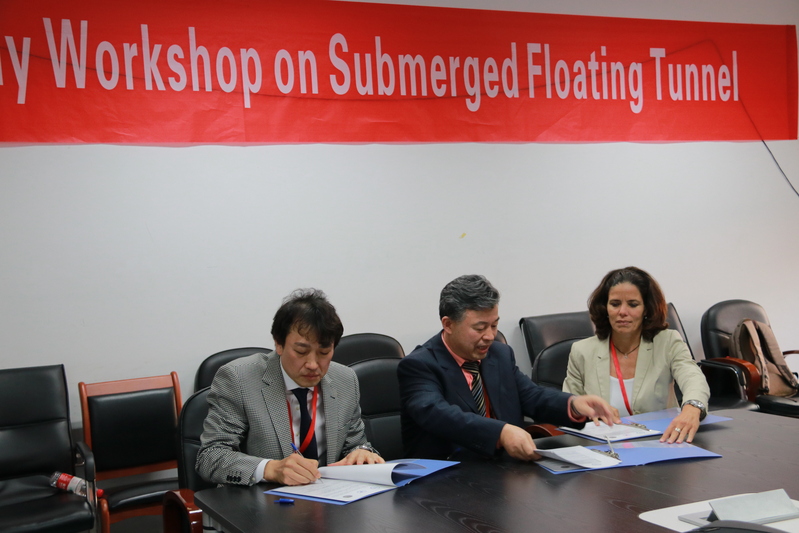
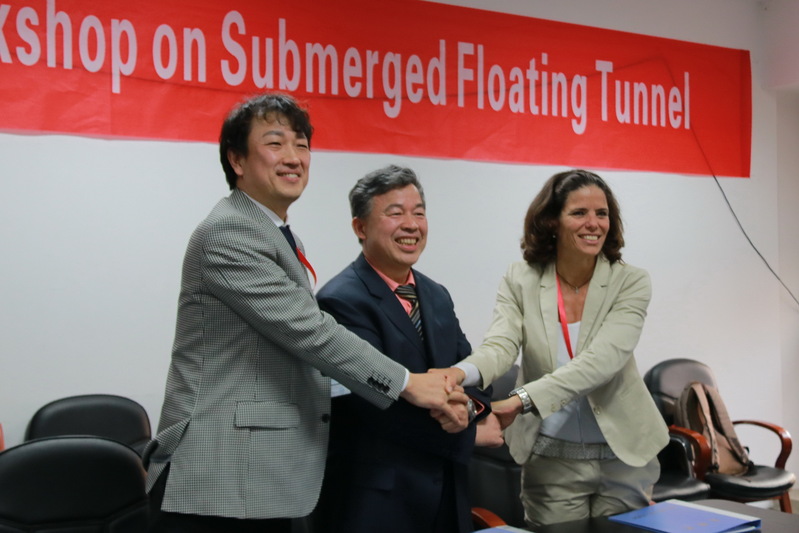
The Research Center for Submerged Floating Tunnel (RCSFT) aims to bring together scholars on bridge and tunnel engineering, structural engineering, geotechnical engineering, engineering management and marine engineering. RCSFT will combine the power of the transportation industry and the community to study the key issues of SFTs, including 1) Action of load, safety and theory of reliability analysis and design method for SFT under the limit state, durability of SFT; 2) Vortex-induced vibration of tube and anchor cable and coupling mechanism of SFT under ocean flow; 3) Dynamic behavior and response mechanism of SFT under seismic excitation; 4) The collision dynamic response and local failure mechanism of SFT, the dynamic response under the action of collision; 5) Damage mechanism of sudden explosion shock within or outside the tube of SFT; 6) The type of deep-sea anchorage foundation and the mechanical properties of SFT under the action of multi-disaster, 7) Environmental impact analysis and assessment of SFT, multi-disaster prevention and mitigation, the risk assessment and control of SFT; 8) The monitoring and early warning system of water structures; 9) New composite materials of high-performance and anti-seepage impact toughness;10) Construction method, technical equipment and application in the engineering etc. basic scientific problems and key techniques, including the system development and application research of future design and construction specifications for SFT and technical equipment.
Edited by: Ian Chew